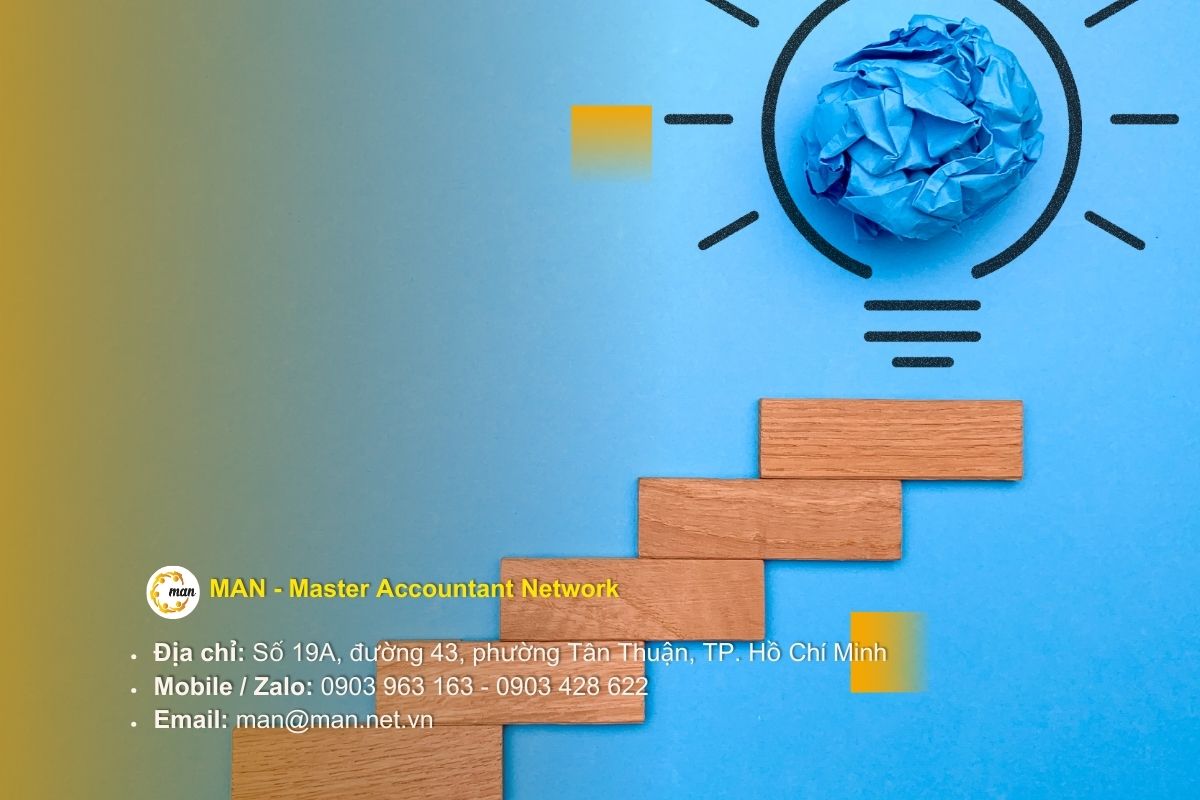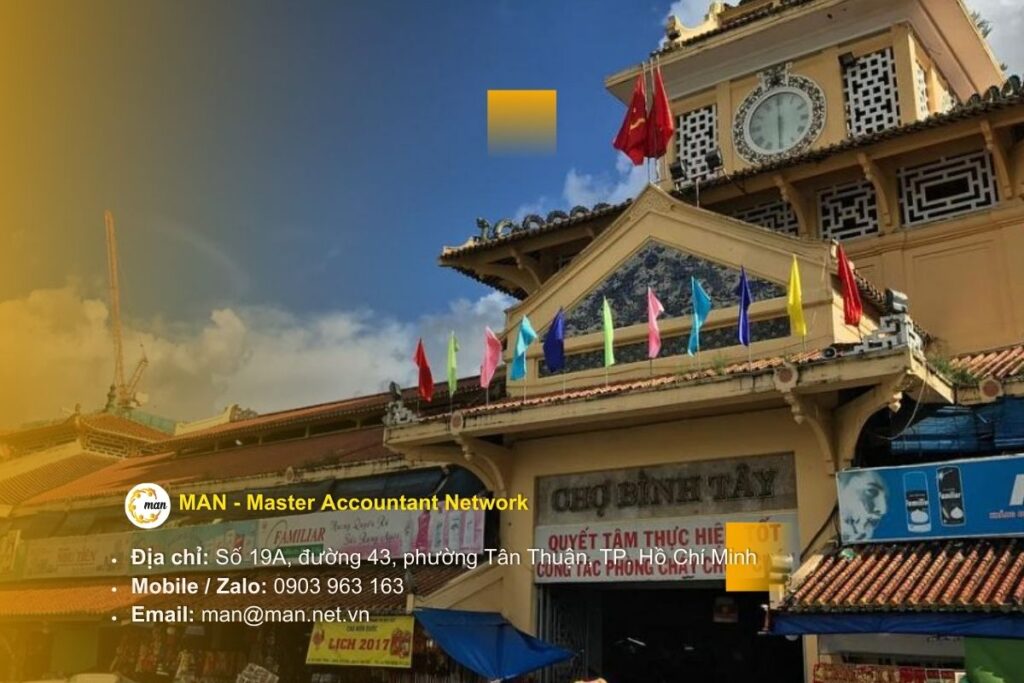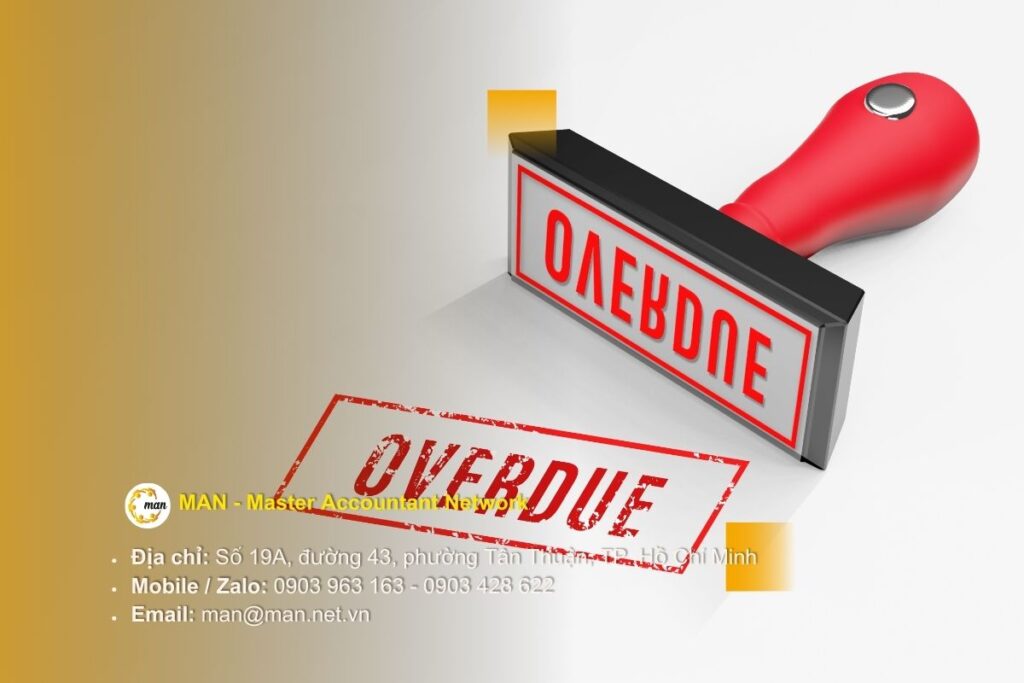In financial and accounting activities, many businesses have difficulty handling overdue interest expenses, especially in the process of tax settlement. If the accounting is incorrect or not timely, this expense is easily eliminated, directly affecting profits and tax obligations. This is the reason why the mechanism for transferring overdue interest expenses was born, helping businesses have more legal "breathing space" to reasonably allocate to the next tax periods. Based on current regulations such as Decree 132/2020/ND-CP, Decree 20/2025/ND-CP, with MAN - Master Accountant Network analyze and learn through the article below.
Overview
In the early stages of 2025, the occurrence of overdue interest expenses is inevitable, especially when businesses face cash flow pressure or are late in paying off loans. However, this is a sensitive expense that can easily be excluded by tax authorities when finalizing if businesses do not properly account for and manage it. A common risk is that overdue interest expenses are not recognized, leading to increased taxable income and additional unexpected corporate income tax (CIT) obligations.
The mechanism of transferring overdue interest expenses between tax periods becomes an important solution, helping businesses have a legitimate legal basis to continue deducting the expenses that have not been deducted in the previous period to the next period. This not only supports optimal tax obligations but also ensures transparency in financial reports, creating trust with investors, banks and management agencies. Based on current legal regulations such as Corporate Income Tax LawDecree 132/2020/ND-CP and Decree 20/2025/ND-CP, the correct application of accounting and transition principles will help businesses minimize the risk of being penalized, while demonstrating professionalism in accounting and tax work.
Legal basis for transferring overdue interest expenses
To ensure transparency and compliance with tax laws, the transfer of overdue interest expenses must be based on a clear legal basis. According to the provisions of the Law on Corporate Income Tax (CIT), interest expenses are considered reasonable expenses if they meet the following conditions: have full legal documents, are directly related to production and business activities and do not exceed the prescribed control level.

In particular, since the issuance of Decree 132/2020/ND-CP on tax management for enterprises with affiliate transactions, the principle of controlling interest expenses is tightened even more. Specifically, total net interest expenses (after deducting income from deposit interest and loan interest) must not exceed 30% EBITDA. The portion of interest expenses exceeding this limit will not be deducted immediately in the period, but will be allowed to be carried forward to the next tax period, within a maximum of 5 years.
“ The portion of non-deductible interest expenses as prescribed in Point a of this Clause shall be transferred to the next tax period when determining the total deductible interest expenses in case the total deductible interest expenses arising in the next tax period are lower than the level prescribed in Point a of this Clause. The period for transferring continuously calculated interest expenses shall not exceed 05 years from the year following the year in which non-deductible interest expenses arise.
Source: Clause 3, Article 16
The new regulations in Decree 20/2025/ND-CP continue to emphasize the mechanism for controlling interest rates, including providing more specific guidance on how businesses account for and monitor overdue interest expenses to avoid taking advantage of borrowed capital to transfer profits. This is a solid legal foundation, helping businesses feel more secure when transferring overdue interest expenses.
Concept and characteristics of overdue interest expense
To understand why the mechanism of transferring overdue interest expenses plays an important role in optimizing tax obligations and ensuring financial transparency, businesses first need to grasp the concept as well as the basic characteristics of this type of expense.
Concept of overdue interest expense
Overdue interest expense is an expense incurred when a business fails to pay its loan debt on time according to the credit contract signed with a bank or credit institution. In addition to the normal interest, the business must pay additional penalty interest or higher interest due to breach of debt repayment obligations. This is a legitimate financial expense, but to be recorded and deducted from taxes, it must strictly comply with legal regulations.
Characteristics of overdue loan costs
The key difference between regular interest and overdue interest expense lies in the nature of the occurrence:

- Normal interest is calculated based on the original loan term at the agreed interest rate.
- Overdue interest arises outside the original agreement and is a sanction when the enterprise violates its debt repayment commitment.
In fact, many businesses easily miss or miscalculate this expense, leading to the risk of being rejected by the tax authority when finalizing. Therefore, accurately accounting for and monitoring overdue interest expenses, as well as correctly applying the overdue interest expense transfer mechanism, is an important step to ensure transparency and legality in financial statements.
From a tax-accounting perspective, overdue interest expenses have the following main characteristics:
- Always associated with corporate financial risks.
- May increase the total cost recognized in the period.
- Subject to strict control by tax authorities to avoid abuse of borrowed capital.
- Allowed to carry forward the undeducted portion to the next tax period (if meeting the conditions under Decree 132/2020/ND-CP).
Understanding this concept and characteristics helps businesses be proactive in accounting for overdue interest expenses, while fully complying with legal regulations. This is a necessary foundation to avoid the risk of being taxed or being punished for administrative violations.
Regulations on the transfer of overdue interest costs
According to current tax laws, especially the Corporate Income Tax Law, Decree 132/2020/ND-CP and inherited and supplemented in Decree 20/2025/ND-CP, the overdue interest expense exceeding the control threshold cannot be deducted immediately in the tax period, but the enterprise has the right to transfer it to the next tax periods. This is an important mechanism, helping enterprises avoid losing expenses, while having more time to optimize cash flow and tax obligations.
The general principles are clearly stated:
- Total net interest expense deductible shall not exceed 30% EBITDA (net operating profit plus interest expense and depreciation).
- The portion of interest expenses exceeding the ceiling, including overdue interest expenses, will be allowed to be carried forward for a maximum of 5 consecutive years.
- Enterprises need to track the transferred costs and fully record them in accounting and tax records so that management agencies can easily check and compare.
The mechanism of transferring overdue interest expenses is a tool to help businesses minimize the risk of being excluded from expenses during tax inspection and examination. If applied correctly, this will be a legal basis for businesses to comply with regulations while maintaining transparency and financial reputation with investors, partners and tax authorities.
Below is a summary table summarizing the characteristics, regulations on interest expense transfer and the mechanism for transferring overdue interest expense, helping businesses clearly understand the difference between normal interest expense and overdue interest expense, and at the same time understand the mechanism for transferring overdue interest expense to account for and record transparent expenses.
Board: Summary of characteristics of the interest expense pass-through regulations
| Content | Detail |
| The difference between regular interest and overdue interest expense. | Normal interest: Calculated based on the original loan term and agreed interest rate. Overdue interest expense: Arising outside the original agreement, acting as a sanction when the business violates its debt repayment commitment. |
| The importance of accounting for overdue interest expenses. | Accurate tracking and accounting helps ensure transparency and legality in financial reporting. Correctly applying the mechanism for transferring overdue interest expenses helps optimize tax obligations and reduce legal risks. |
| Main characteristics of overdue interest expense. | Always associated with corporate financial risks. May increase total costs recorded in the period. Subject to strict control by tax authorities. The undeducted portion can be carried forward to the next tax period (according to Decree 132/2020/ND-CP). |
| Legal basis and transitional provisions. | Corporate Income Tax Law, Decree 132/2020/ND-CP, Decree 20/2025/ND-CP. Interest expenses exceeding the control threshold cannot be deducted immediately, but can be carried forward to subsequent tax periods. Total net interest expense deducted shall not exceed 30% EBITDA. The excess portion (including overdue interest expenses) is allowed to be carried forward for a maximum of 5 years. Businesses need to monitor and record fully in accounting and tax records. |
The summary table partly helps businesses understand the mechanism of transferring overdue interest expenses in accounting and tax management.
Instructions for accounting for overdue interest expenses

To help businesses visualize easily, below is a table of instructions for accounting for and transferring overdue interest expenses.
Board: Guidance on accounting for and carrying forward overdue interest expenses
| Steps to take | Content | Legal |
| Step 1: Determine the overdue interest expense. | Based on credit contract, bank statement or notice of overdue interest calculation. Distinguish clearly between normal interest and overdue interest expense. | Based on the contract and original documents; the Corporate Income Tax Law stipulates that expenses must have legal records. |
| Step 2: Record in the accounting book. | Use account 635 (Financial expenses for accounting). Transaction:
| Vietnamese Accounting Standards (VAS) and Circular 200/2014/TT-BTC detailed instructions |
| Step 3: Monitor overdue interest costs. | If total interest expense exceeds 30% EBITDA (according to Decree 132/2020/ND-CP), the excess (including overdue interest) must be monitored separately. Allowed to carry forward overdue interest costs for up to 5 years. | Article 16, Decree 132/2020/ND-CP; updated according to Decree 20/2025/ND-CP. |
| Step 4: Present on corporate income tax settlement records. | Make a statement of interest expenses and carryforwards. Attach documents proving actual occurrence. Present clearly for easy inspection and comparison by tax authorities. | Helping businesses ensure transparency, compliance and trust |
Through the table above, it can be seen that the accounting and transfer of overdue interest expenses is not only limited to accounting operations but also closely linked to tax law compliance. If the enterprise follows the steps and legal basis as stated, the expenses will be recorded validly, transparently and have a solid basis for deduction or transfer to the following tax periods. This is an important solution to help enterprises optimize tax obligations and strengthen the reputation and reliability of financial reports.
From the above analysis, it can be seen that the transfer of overdue interest expenses not only has accounting significance but is also an important tool to help businesses effectively manage tax risks.
Conclude
The mechanism of transferring overdue interest expenses is an important solution to help businesses comply with legal regulations and optimize reasonable costs in the long term. Mastering the concepts, accounting methods, deduction limits and transfer procedures not only helps businesses avoid the risk of having expenses excluded when settling corporate income tax, but also affirms transparency and professionalism in financial management.
If your business is struggling to find a comprehensive and safe solution for accounting, reporting and forwarding overdue interest expenses, Contact now MAN – Master Accountant Network for in-depth consultation and support for sustainable business development.
Contact information MAN – Master Accountant Network
- Address: No. 19A, Street 43, Tan Thuan Ward, Ho Chi Minh City
- Mobile / Zalo: 0903 963 163 – 0903 428 622
- E-mail: man@man.net.vn
Editorial Board: MAN – Master Accountant Network




